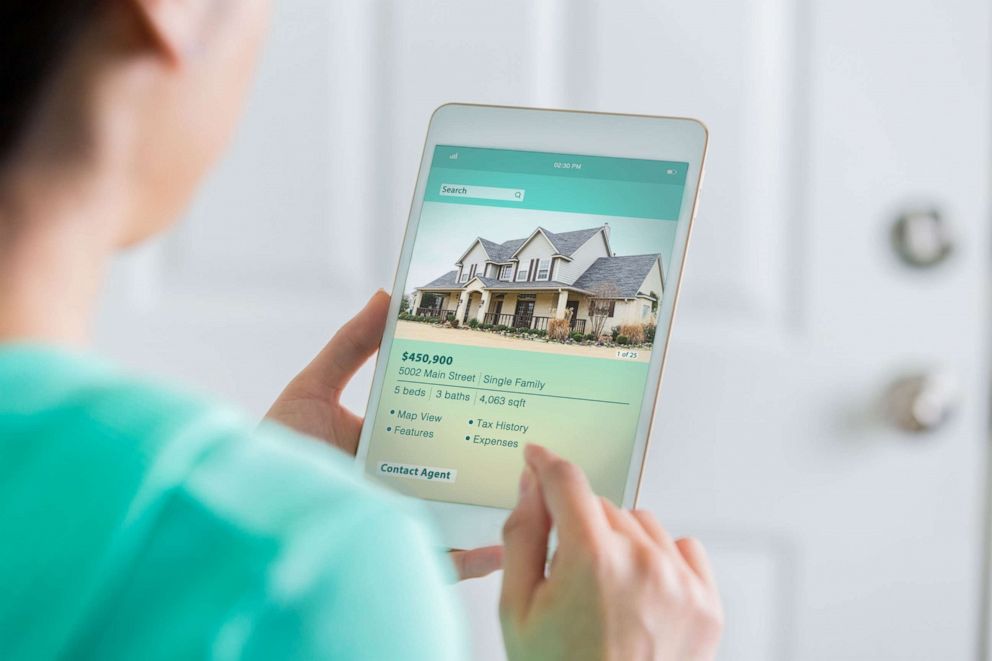Money, marriage and COVID-19: 4 steps to keep your finances and relationship strong
Let’s be honest -- it’s a challenging time for married couples right now.
You may be madly in love with your spouse, but with the coronavirus pandemic forcing nearly everyone to quarantine at home, you may be longing for a little alone time.
But with millions now unemployed because of COVID-19, many marriages are now facing a financial crisis.
Rachel Cruze, a personal finance expert with Ramsey Solutions and a New York Times best-selling author, shared some tips with “GMA” to help couples navigate financial uncertainty and prepare as best they can for the future.
1. Face your fears together
Cruze says the shutdowns and working from home have brought a lot of financial fears to light.
“Some people are paralyzed by their fear, while some think this is all crazy,” she said. “One of the key things right now is to have grace for each other, regardless where you fall. Be sensitive if your spouse is feeling scared.”
Cruze also notes that it’s important for couples to share their financial fears with each other and to acknowledge them.
“Understanding those fears helps you to understand why your partner views money the way they do," she said. "But don’t let fear drive your decisions. Especially with your money. Fear should fuel you to get facts. Make decisions based on facts, not fear."
2. Make a plan together
Cruze says if you want to win with money, you need a budget.
“I know, it’s the dreaded b-word,” Cruze said, “but if you don’t tell your money where to go, you’ll wonder where it went.”
Cruze says that many people feel limited by a budget, but points out that having one actually gives people freedom.
“You are giving yourself permission to spend,” she explained. “Sit down every month with your spouse and create a zero-based budget together. This is where your income minus your expenses equals zero. You are telling every single dollar where to go.”
Cruze also says that “if you’re in crisis-mode, you still need a budget! Whether it’s from your savings or a stimulus check, put it in the budget.”
She went on, “Remember, you’re in this as a team. Show each other grace. Opposites attract, so one of you may be a spender and one may be a saver. One is not better than the other. The most important thing is to do your budget together.”
3. Don’t do debt
Cruze recommends taking debt off the table, whether you’ve lost your income or not.
“Debt will keep you paying for your past when you should be focused on your future,” she said. “It’s tempting if you’re in a financial crisis to rely on debt, but it’s only going to add the problem and stress.”
Cruze suggests that if you have lost your job, focus on “covering your four walls” -- food, shelter, utilities and transportation.
“Once you’ve covered those, continue to stay current on your debt if you can. But if you are struggling to cover your four walls, don’t pay Mastercard if you can’t put food on the table,” she said.
And if you are still working and able to do so, now is the time for that emergency fund you’ve been putting off.
“If you haven’t lost your income and your job is stable, start by building a $1,000 starter emergency fund,” Cruze said. “Once you have that, list your debts smallest to largest, regardless of interest rate. Attack the smallest one first. Once you’ve paid that off, you can roll that payment to the next one. This is called the debt snowball and we’ve seen people pay off their debt in an average of 18-24 months.”
Cruze added, “Debt is a behavior problem, not a math problem. This is about gaining momentum. Once you’re debt-free, then you can build a three to six month emergency fund so you’re prepared and have a solid financial foundation for things like COVID-19.”
4. Share your dreams for the future with each other
“Having a shared dream with your spouse brings you closer together. When you share a dream, you work as a team,” Cruze said.
She pointed out that money is just a tool for couples to create a life together, and regardless of whether you head back to work soon or are quarantined for a while, you continue to make a dream for your future.

“Talk about what you want to take from quarantine into your future. How do you want to be better with your money in the future? What do you want your future to look like?” Cruze said. “Now is the time to get on the same page with each other and what you’re going to do differently.”
As a No. 1 New York Times best-selling author, host of “The Rachel Cruze Show” and “The Rachel Cruze Show” podcast, Cruze helps people learn the proper ways to handle money and stay out of debt. She’s authored three best-selling books, including “Love Your Life, Not Theirs” and “Smart Money Smart Kids,” which she co-wrote with her father, Dave Ramsey. You can follow Cruze on Twitter, Instagram, Facebook, YouTube and her website.




